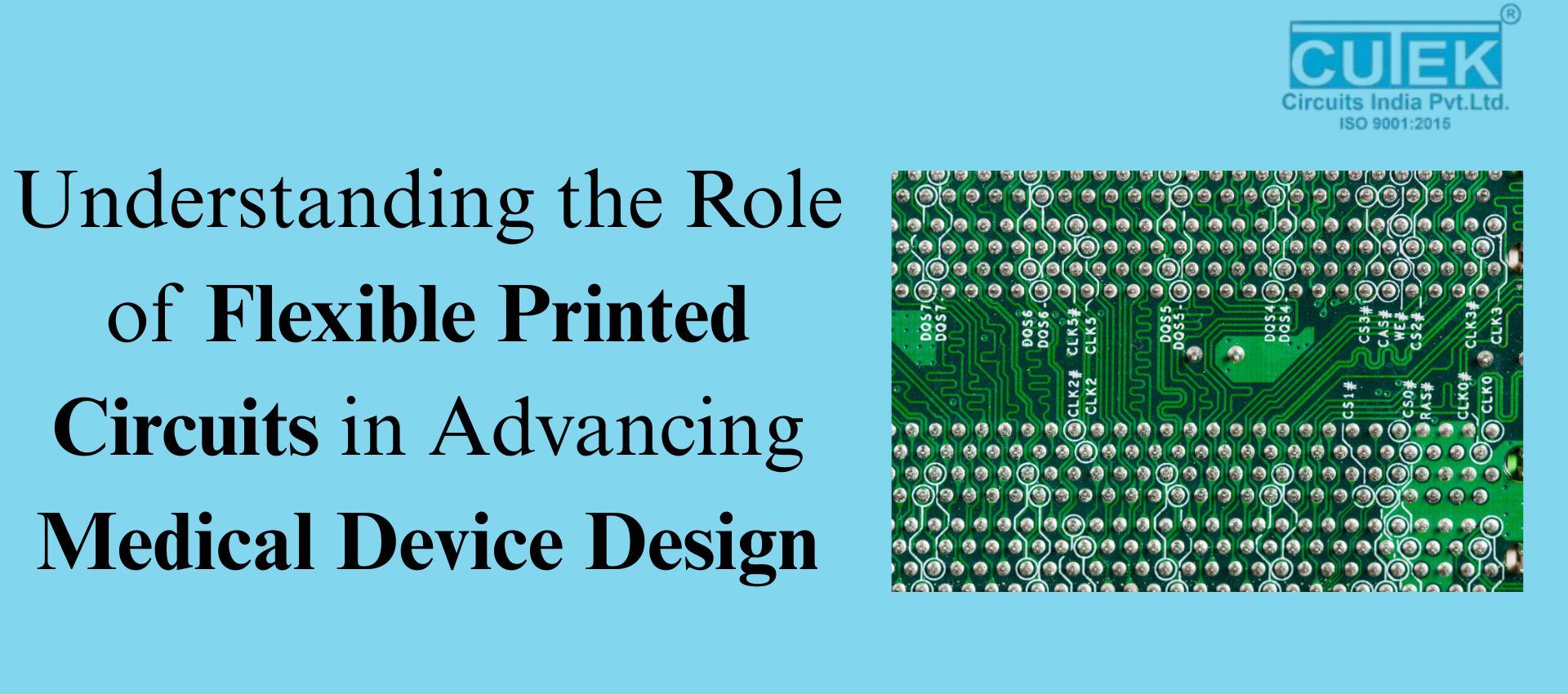Introduction
The healthcare industry is evolving rapidly, driven by technological innovation and the demand for smaller, more efficient medical devices. One of the key technologies enabling this transformation is Flexible Printed Circuits (FPCs), also referred to in the medical field as Medical Printed Circuits. These circuits provide designers with the ability to create compact, reliable, and high-performance devices that enhance patient care and improve usability.
From wearable health monitors to implantable devices, flexible circuits are now an integral part of modern medical device engineering. Companies like Cutek Circuits are at the forefront of developing high-quality solutions for the healthcare industry.
What are Flexible Printed Circuits?
Definition & Core Features
Flexible printed circuits are electronic circuits that can bend, fold, or twist without breaking. Unlike traditional rigid printed circuit boards (PCBs), FPCs are made using flexible substrates such as polyimide or polyester. This allows circuits to fit into tight spaces, follow curved surfaces, and integrate into devices where traditional rigid boards would not be practical.
Key Advantages of Flexible Printed Circuits
- Flexibility & Compactness: Ideal for devices with limited space.
- High Reliability: Resistant to vibration and mechanical stress.
- Durability: Can withstand harsh medical environments and repeated use.
Importance of Printed Circuits in Medical Devices
Why Flexibility Matters in Healthcare Applications
Medical devices often require ergonomic designs that are lightweight and comfortable for patients. Flexible printed circuits allow designers to build devices that conform to the human body, such as wearable patches or portable diagnostic tools, improving usability and comfort.
Meeting the Demands of Modern Medical Engineering
- Improved Signal Integrity: Ensures accurate readings in medical equipment.
- Support for Miniaturization: Essential for compact wearable and implantable devices.
- High-Density Interconnections: Efficiently connect multiple components in limited space.
Applications of Flexible Printed Circuits in Medical Device Design
Wearable Health Monitoring Devices
Devices such as smart patches, continuous glucose monitors, and heart rate trackers use flexible printed circuits to offer comfort and accurate measurements in a compact form factor.
Implantable Devices
Pacemakers, neurostimulators, and cochlear implants rely on medical printed circuits to provide long-term reliability while fitting into small, delicate spaces.
Diagnostic & Imaging Equipment
Flexible circuits are used in MRI machines, ultrasound probes, and portable diagnostic tools to deliver precision and durability under demanding conditions.
Surgical & Therapeutic Tools
Advanced surgical devices, robotic surgery systems, catheters, and endoscopic tools leverage flexible printed circuits for improved performance and integration in minimally invasive procedures.
Benefits of Using Flexible Printed Circuits in Medical Devices
Enhanced Patient Comfort
Lightweight and ergonomic designs made possible by flexible circuits improve the user experience, especially in wearables and implantables.
Miniaturization & Portability
FPCs allow for ultra-compact devices that are portable, efficient, and suitable for home use, hospitals, or remote monitoring.
Reliability & Safety
Flexible circuits are highly resistant to bending, vibration, and environmental stress, ensuring medical devices remain safe and reliable throughout their lifecycle.
Challenges and Design Considerations
Biocompatibility & Safety Standards
Medical devices must use biocompatible materials to prevent adverse reactions. FPC designers must follow strict regulatory standards to ensure safety.
Manufacturing Complexity
Creating flexible circuits requires precision engineering and advanced manufacturing processes to maintain performance and reliability.
Cost & Scalability
Balancing innovation with affordability is critical, especially when producing devices for large-scale deployment.
The Future of Medical Printed Circuits
Integration with IoT & AI in Healthcare
Flexible circuits enable smart, connected devices that transmit real-time data to cloud platforms, improving patient monitoring and remote care.
Flexible Electronics & Bioelectronics
Next-generation medical devices will integrate FPCs with bioelectronics to deliver personalized treatment and continuous health monitoring.
Toward Ultra-Miniaturized Devices
As devices become smaller and more sophisticated, medical printed circuits will continue to drive innovation in portable, wearable, and implantable healthcare solutions.
Conclusion
Flexible printed circuits are revolutionizing medical device design by enabling compact, reliable, and ergonomic solutions. From wearable monitors to implantable devices, these circuits improve patient comfort, device performance, and overall healthcare efficiency.
Medical printed circuits are at the heart of modern healthcare innovation, helping engineers and designers push the boundaries of what’s possible in patient care. Companies like Cutek Circuits provide advanced, high-quality FPC solutions tailored to the demanding requirements of the medical industry.
Contact Us
Cutek Circuits
📍 4/4 Badhe Industrial Estate, Next To Silver Star Hall, OPP. To Angaraj Hotel, Kondhwa, Pune, Maharashtra 411048, INDIA
📞 +91 92255 24304 | +91 98237 84304 | +91 87930 34304
info@cutekcircuits.com | sales@cutekcircuits.com

